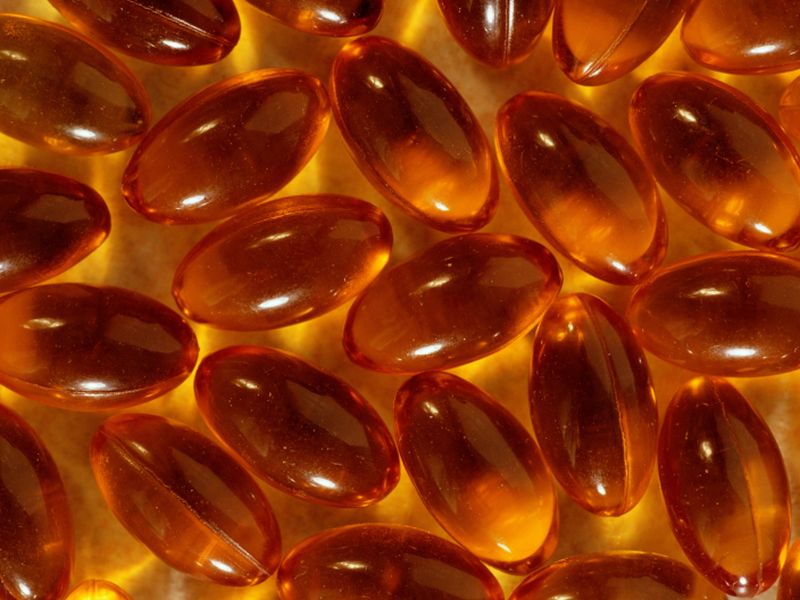
Children with attention-deficit/hyperactivity disorder (ADHD) and low blood levels of omega-3 fatty acids might benefit from supplements, new research suggests.
Fish oil supplements appeared to boost attention in these kids, British researchers report.
The effect seemed limited to youngsters who weren't already getting enough omega-3 in their diets, however.
Prior research by the same team of investigators found that children with omega-3 deficiency are more likely to have more severe ADHD.
"Our results suggest that fish oil supplements are at least as effective as conventional pharmacological treatments among those children with ADHD who have omega-3 deficiency," said co-lead researcher Jane Chang. She's at the Institute of Psychiatry, Psychology & Neuroscience, at King's College London.
One ADHD specialist working in the United States said the work is early, but promising.
"Omega-3 fatty acids have been studied to determine their efficacy in this population in the past, and the results have been equivocal," said Dr. Victor Fornari, vice-chair of child & adolescent psychiatry at the Zucker Hillside Hospital in Glen Oaks, N.Y.
Although "further work needs to be done," Fornari said, "this may be a promising treatment for a subset of youth with ADHD."
The British study included 92 children with ADHD, aged 6 to 18, who were given high doses of the omega-3 fatty acid EPA (eicosapentaenoic acid) or a placebo for 12 weeks.
Those with the lowest blood levels of EPA before the study had improvements in focused attention and vigilance after taking the supplements, but these improvements didn't occur in children with normal or high blood levels of EPA.
According to senior researcher Carmine Pariante, also at King's College London, "The omega-3 supplements only worked in children that had lower levels of EPA in their blood, as if the intervention was replenishing a lack of this important nutrient. For those children with omega-3 deficiency, fish oil supplements could be a preferable option to standard stimulant treatments," she said in a school news release.
But the researchers cautioned that children with high blood levels of EPA before the study actually had a worsening of impulsivity symptoms after taking the supplements.
That's why parents should consult with medical professionals before giving their children high-dose fish oil, Chang said.
"It is possible to have too much of a good thing, and parents should always consult with their children's psychiatrists since our study suggests there could be negative effects for some children," Chang added.
The researchers also stressed that their study looked at data from children in Taiwan, where diets tend to be higher in fish than in Western nations.
Most studies of children with ADHD have been conducted largely in Western countries, and have found average blood levels of EPA that are lower than in this new study.
Co-lead researcher Kuan-Pin Su, of China Medical University in Taichung, Taiwan, said that "it is possible that EPA deficiency is more common among children with ADHD in countries with less fish consumption, such as in North America and many countries in Europe, and that fish oil supplementation could therefore have more widespread benefits for treating the condition than in our study."
The study was published online Nov. 20 in Translational Psychiatry.
Sources: Victor Fornari, M.D., vice chair, child & adolescent psychiatry, Zucker Hillside Hospital, Glen Oaks, N.Y., and investigator, Center for Psychiatric Neuroscience, Feinstein Institute for Medical Research, Manhasset, N.Y.; King's College London, news release, Nov. 19, 2019.







0 Comments